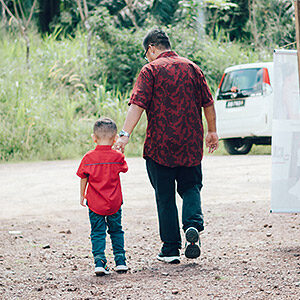Unfortunately, 4,724 children in South Australia live ‘In Care’. That means they are living away from their biological parents, and the Government organises for them to go into foster care, kinship care, or an alternative temporary arrangement.
There are different reasons children need foster care. They have likely experienced trauma, abuse, neglect, or their parents may not be able to care for them properly for various reasons such as poverty, violence, homelessness, or mental illness. In 2022, in South Australia, there were 9,843 notifications of child abuse or neglect, an increase of 30% from the prior year.
According to data published by the Australian Government, emotional abuse, including witnessing violence, is the most common type of abuse or neglect, comprising 54% of all reports. This is followed by neglect (22%), physical abuse (14%), and sexual abuse (9%).
Each year, around 3% of all children aged 0 to 17 are assisted by Australia’s child protection systems. Child protection services include investigations, care and protection orders and ‘In Care’ arrangements. It is estimated that two-thirds of children who received child protection services have previously experienced the child protection system.
How do foster carers help?
Foster carers play a vital role in Australia’s child protection systems. They open their homes and their hearts to children in need. Having a stable, safe and nurturing home is critical for these children, who have often been exposed to some form of trauma.
Centacare Foster Care provides wraparound support services to foster carers throughout the fostering process, as well as providing a robust training schedule.
Who can become a foster carer?
All types of people can be foster carers. They must be in good health and aged between 25 and 70. Carers can be married or single and with or without children. It doesn’t matter your ethnicity, culture, religion, gender or sexuality – you can apply to be a foster carer.
Learn more about who can be a foster carer here.
Maintaining cultural connections
Aboriginal and Torres Strait Islander children continue to be over-represented among children receiving child protection services, with 30% of children in the South Australian child protection system being Aboriginal and Torres Strait Islander. Also, many children ‘In Care’ are from culturally and linguistically diverse backgrounds. They may be from refugee or asylum speaker backgrounds, speak English as a second language, or follow a different faith.
Building a diverse base of foster carers is essential to help children remain connected to their culture. Children in care who are supported to maintain a connection to their culture, religion and language can develop their sense of belonging and identity, which leads to better outcomes as they grow up. Helping children remain connected to their culture can also assist with their transition back to their birth family and community.
Contact with the birth family
In South Australia, when a child or young person comes into foster care, the aim is to return them to the care of their parents as soon as it is safe. Centacare Foster Care supports all types of care, if reunification is unable to occur. It’s important for kids to have access to their birth families to understand where they came from. This includes visits and other contact with the birth family when deemed appropriate. Centacare Foster Care provides support services for foster carers and children.
Read more about the reunification process here.
Interested in becoming a foster carer?
Being a foster carer is much more than just provisioning a home for a child. You get to help them realise their potential and watch them grow.
If you think you could open your home and your heart to a child in need, we’d love to hear from you.
For further information or to register your interest, please phone our Foster Care team on 8159 1400 or email fostercareenquiries@centacare.org.au


